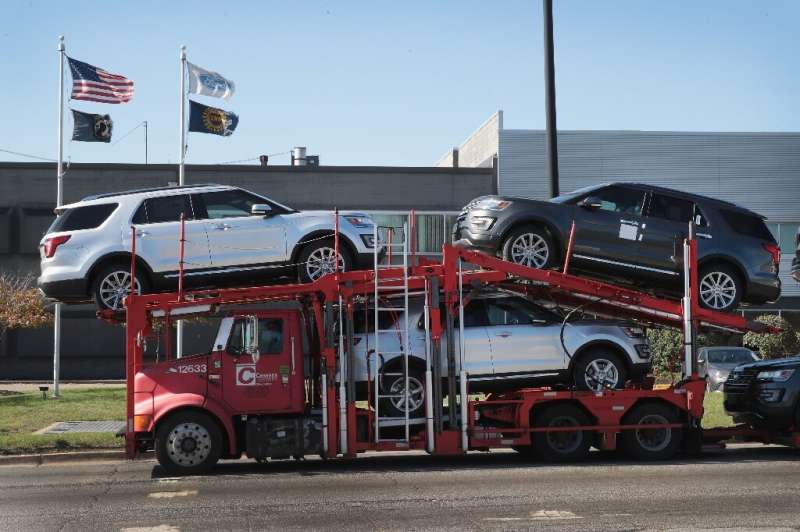Urban SUVs driving huge growth in CO2 emissions: IEA

The undying popularity of sport-utility vehicles has made them the second-biggest contributor to the growth of global CO2 emissions in recent years, just behind the power sector, the head of the International Energy Agency said Wednesday.
"In 2010, 18 percent of all car sales in the world were SUVs. In 2018, more than 40 percent of all cars sold in the world are SUVs!" Fatih Birol told an electric energy conference in Paris.
Demand for the heavy, fuel-guzzling vehicles is soaring in the US and Europe as well as in China, India and other developing countries, where they are particularly prized as status symbols, according to an IEA report released this week.
And despite often having four-wheel drive, SUVs are mainly used by urban drivers—the steepest climb they face is probably out of a parking garage.
SUVs spewed some 700 million tonnes of carbon dioxide into the atmosphere from 2010 to 2018, nearly half the amount produced by the power sector, the IEA report said.
They surpassed emissions from heavy industry such as iron or steel production, and far outstripped CO2 from trucks, aviation or shipping—other high-polluting transportation means under fire by climate activists.
And Birol warned that even the shift from internal combustion engines to electric vehicles—often called the end of the "ICE age"—would hardly make a dent in the auto industry's emissions.
"Yes, electric cars are going very strong, today there are about six million electric cars in the world," he told the conference.
"But does it mean decarbonisation? Absolutely not," he said, noting that half of the cars are currently in China, which gets two-thirds of its electricity from coal-fired power plants.
And the IEA report noted that if SUV demand continued at current rates, they would add nearly two million barrels to global daily oil demand by 2040, "offsetting the savings from nearly 150 million electric cars."
"Electric cars are not a panacea," Birol said, "the prerequisite is decarbonisation of the power system."
© 2019 AFP





















